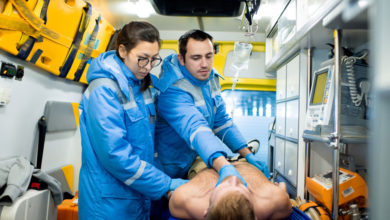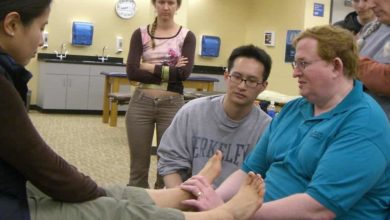This week, Emily discusses how she is developing her emotional intelligence along with her clinical knowledge in medical school.
This block we are learning about the gastrointestinal tract – how food enters, travels through, and exits our bodies. We are spending a lot of time on the anatomy and pathology of the gut. One of the things that I did not anticipate about medical school, however, was that I would be giving equal effort to developing and interpreting my own gut feelings and reading those of the patients I see.
||Read What to Expect in Medical School Part 1||
Patients and their families frequently evaluate physicians for their “bedside manner” and level of “empathy.” Physicians that fail to deliver bad news gently or brush off a patient’s concerns about how treatment might affect his appearance are considered cold – uncaring. Many are overburdened with work and feel they are unable to spend the requisite time with individual patients to offer emotional support, others dissociate as a means of protecting themselves from heartache. As a result patients feel slighted and doctors feel dissatisfied – neither having their expectations of what this relationship would look like fulfilled. The burden falls on social workers, psychologists, and hospital chaplains to fill in the emotional void.
||Read Personal Statements and Emotional Topics||
This week I rounded with one of our hospital chaplains. He provides spiritual guidance to patients of faith, but also a nonjudgmental ear to those carrying an emotional burden. Together we visited a gentleman that had recently received a transplant, an elderly schizophrenic woman, and a young lady that was chronically ill due to severe intestinal complications. This last patient expressed frustration with her family, but never once mentioned her physical illness or pain. Her social situation was more distressing than the physical ailments that she had learned to live with. All of this, the chaplain elicited in less than five minutes.
||Read What to Expect in Medical School Part 2||
At certain moments, I felt it was appropriate to propose a thought or interject with a question. One of these moments was when the patient began to cry. After our visit, the chaplain commented that in that moment I had wanted to help the patient feel better immediately, and was quick to ask a question that moved her from her heart to her head. I was uncomfortable with her discomfort, so I intellectualized her emotion. This is, apparently, something that many doctors (and prospective doctors) are guilty of.
We are trained problem-solvers – an analytic brain makes us better diagnosticians and allows us to critically evaluate treatment options. We are uncomfortable with discomfort, and want to analyze it so that we can set about fixing it. We will tend to do this with our patients, and – perhaps more alarmingly – we will do it with ourselves.
||Read Why Do I Have to Take Physics?||
The chaplain told me that it is important to let people tolerate difficult or painful emotions without immediately rushing to make them feel better. Staying “in the heart” can be valuable – experiencing and surviving emotional pain makes us stronger. Remaining in this emotional plane can especially strengthen the doctor-patient relationship: by allowing your patients to express their feelings without trying to “fix” them, you can convey that you care, that you do not judge them for being down, and that you are there to support them while they process complex emotional circumstances.
“Gut instinct” often separates the experienced from the inexperienced physician (think Dr. House), and the results of strong instinct are swifter diagnoses and treatments, and better clinical outcomes. We have all experienced a lurch in our stomach when we felt disappointment, fear, anger, or pain – emotional intelligence seems also to originate in the gut. As I continue down my path to medicine I will allow my personal emotional experiences to shape my “gut instinct” as much as my clinical knowledge, in the hopes of becoming a better doctor.
||Read Emily’s Path Part 4: Doctor Parents||



